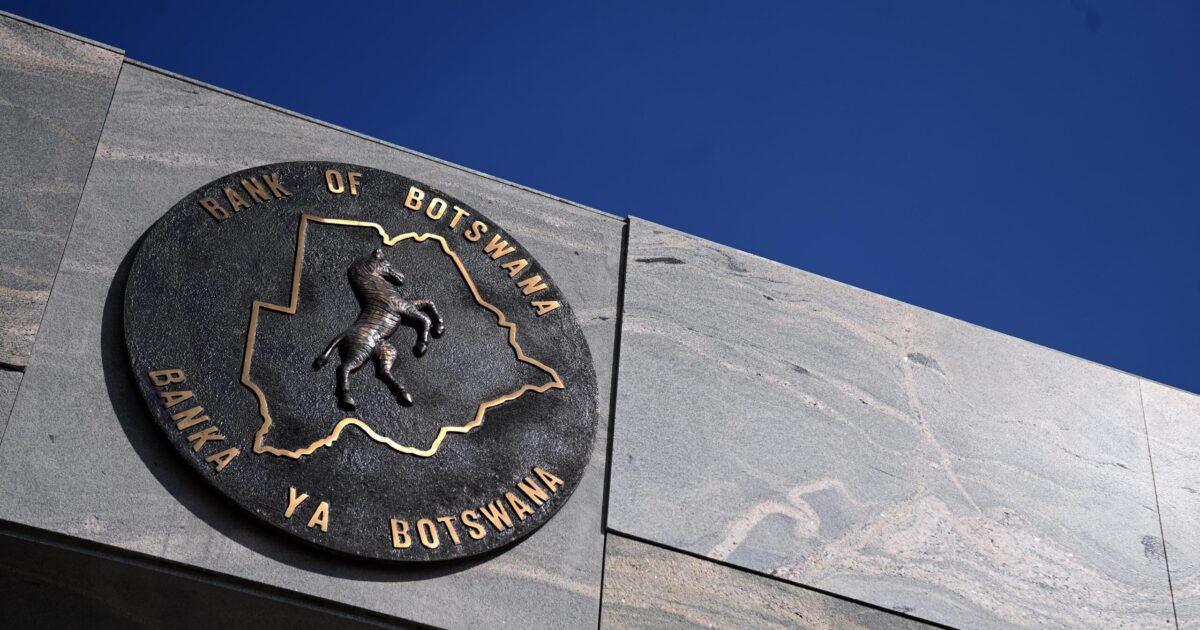Africa-Press – Botswana. The Financial Stability Council’s conclusion of “safe and sound” comes with a warning that challenges posed by both domestic and international factors demand continued vigilance and proactive policy measures.
Despite mounting risks, Botswana’s financial system remains resilient, safe and sound.
This is the conclusion of Botswana’s Financial Stability Council (FSC) after it recently convened to assess the nation’s financial health in the wake of growing global economic uncertainty.
However, it added, challenges posed by both domestic and international factors demand continued vigilance and proactive policy measures.
“Fundamentally, the FSC judged that the financial system remains safe, sound and key for supporting economic activity,” said the Council in a recently released statement.
Net forex outflows
Nevertheless, the increasingly uncertain macroeconomic environment – characterised by a deteriorating fiscal position, slow economic growth, and persistently low liquidity levels – poses significant challenges.
One of the most pressing issues highlighted during the meeting was the historic low level of commercial bank liquidity. This is primarily attributed to net foreign exchange outflows and a slowdown in government spending, driven by weaker diamond market performance.
The Council noted that these factors have raised the cost of funding, impacting both deposits and credit despite the Bank of Botswana’s (BoB) accommodative policy stance.
Vigilant
In response, BoB took decisive measures to ease liquidity pressures. In December 2024, the central bank reduced the primary reserve requirement to zero, injecting approximately P1.8 billion into the market.
Additionally, the maturity of repurchase agreements was extended from overnight to seven days, allowing commercial banks greater flexibility.
“Financial sector regulators and financial institutions should continue to be vigilant in monitoring risks to credit exposures and liquidity-related developments,” the FSC emphasised.
This careful monitoring is deemed crucial to safeguarding the nation’s financial stability in the face of interconnected and concentrated funding issues.
Heightened global risks
Since the previous FSC meeting in November 2024, global risks have heightened. These include elevated financial asset valuations, liquidity vulnerabilities among non-bank financial institutions (NBFIs), and significant debt burdens exacerbated by geoeconomic fragmentation.
The Council recognised that these global challenges spill over into Botswana’s financial landscape, potentially undermining stability.
Domestically, the weaker performance of the diamond market has particularly impacted fiscal and external stability. The Council warned that this situation could further strain the economy, given the pivotal role that diamonds and government spending play in the financial ecosystem.
Structural issues
The FSC acknowledged that addressing structural issues – such as funding concentration and the tendency of commercial banks to hold large foreign currency reserves – remains essential.
Moreover, there is a need to prevent a persistent misalignment between market funding prices and the objectives of monetary policy.
The Council underscored the importance of comprehensive regulatory and supervisory measures, highlighting forthcoming policies aimed at enhancing consumer protection and financial inclusion.
These include Banking Regulations, the Non-Bank Lenders Bill, Electronic Payment Services Regulations, and the Health Insurance Bill.
Climate and cyber risks
In addition to financial risks, the Council addressed emerging threats such as climate change and cyberattacks. BoB recently joined the Central Banks and Supervisors Network for Greening the Financial System (NGFS) to better integrate climate considerations into financial stability strategies.
“Membership of the NGFS is expected to strengthen the country’s participation and collaboration on global climate dialogue,” the Council noted.
Cyber threats, too, remain on the radar, with regulators working to bolster institutional capacity and enhance risk management frameworks.
Financial integrity
The FSC also highlighted progress in combating money laundering and terrorism financing. The Financial Intelligence (Amendment) Act, 2025, established a National Coordination Office to centralise anti-money laundering efforts.
A mock evaluation conducted in June 2024 gauged the country’s preparedness for the 2027 Eastern and Southern Africa Anti-Money Laundering Group (ESAAMLG) mutual evaluation, identifying areas needing improvement.
“Financial conduct and integrity risks are generally contained,” the FSC reported, affirming that regulatory advancements continue to strengthen Botswana’s financial system.
Proactive interventions
Despite the outlined challenges, the FSC maintains confidence in Botswana’s financial sector. The banking system’s non-performing loans ratio remains modest, and the negative Credit-to-Gross Domestic Product gap provides room for prudent credit growth.
Additionally, the rise in the value of shares on the stock exchange reflects positive sectoral developments.
Looking ahead, the FSC pledged continued monitoring of financial stability risks and proactive interventions where necessary. The Council’s next meeting is scheduled for 6 November 2025, with the Financial Stability Report set for release in June 2025.
For More News And Analysis About Botswana Follow Africa-Press






